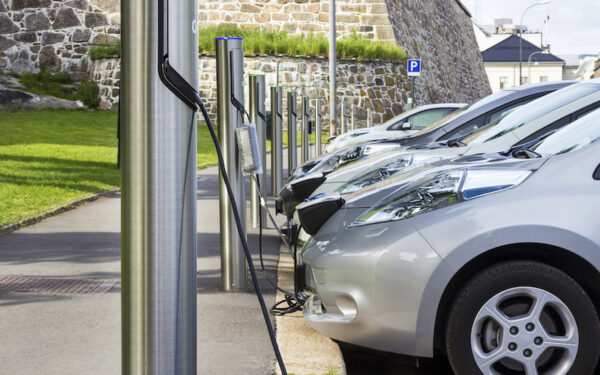
Greenwashing isn't going anywhere, but that doesn't mean we can't push back. Photo Credit: Daniel Fung via Shutterstock
During my recent stint on parental leave, I tried to disconnect from my Zero Waste work. No public hearings on high-heat waste burners. No work on bottle bills, single-use plastic bans, or composting. No campaigning to shut down incinerators or landfills. Just quality time with my partner, our newborn, and our toddler. But I quickly realized that there’s no off-switch for the corporate greenwashing that makes this work difficult – it’s ever-present in our lives.
While I was out, I picked up a magazine and came face-to-face with an American Beverage Association ad campaign claiming to have the answer to plastic pollution. I visited YouTube and got recommendations for industry puff pieces on so-called “chemical recycling.” I opened a package of baby supplies and saw dubious claims of recyclability and sustainability.
Other than raising my blood pressure, what did each of these have in common? They all misappropriated the term “circular economy” – a term that is supposed to represent a shift from our toxic, throwaway society toward reusable and refillable solutions. The companies that profit off single-use plastics, waste, and climate damage are somehow claiming to be a part of the solution by promising to “close the loop.”
So, now that I’m back at work, I’d like to set the record straight. What does circular economy really mean? And why will single-use plastics and waste-burning technologies never have a place in it? Here are the answers.
What Is the Circular Economy?
“Circular economy,” much like “Zero Waste,” has become a buzzword. There are many, many interpretations of the term. But unlike Zero Waste, there’s no official definition. Still, the best interpretations revolve around a few key tenets. A circular economy:
- reuses products and materials, rather than extracting new materials (like the fossil fuels required to make plastic) for single-use, disposable products and packaging;
- generates zero waste;
- has little environmental impact (meaning the circular systems do not spew toxic pollutants).
These tenets reveal what the circular economy should really embody: reuse. Only when we reuse materials, products, and packaging can we eliminate toxic environmental impacts and waste from our economy. That said, the circular economy is best understood as a reuse economy. Any technology, material, or practice that relies on extracting new materials from the earth, pollutes the environment, poisons communities, or creates waste, cannot be part of the reuse economy.
Single-Use Plastics Have No Place in a Reuse Economy
Single-use plastics violate every principle of the circular economy. That’s because plastics pollute at every stage of their lifecycle – from production to disposal. Plus, plastics are rarely recycled.
The only way to address these problems is to stop plastic production at its source. This means putting an end to single-use plastic packaging – including the billions of plastic bottles sold with the backing of industry lobbying groups like the American Beverage Association. These groups actively sell the myth that plastics are part of the circular economy. But, in reality, their members profit enormously from single-use plastic and plastic waste. Any claim that these groups support a reuse economy is laughable.
What’s more, the American Beverage Association and its members have opposed bottle return programs, or bottle bills, for decades. These programs improve recycling and support the infrastructure needed to transition to refillable containers. That’s why Zero Waste advocates see them as a key element in achieving a reuse economy .
So, how can a group that actively thwarts progress toward the circular economy, be in favor of the circular economy? They can’t. Industry is spinning a fable so that it can sell as many plastic bottles as possible without having to pay the true cost for its environmental destruction. This is textbook greenwashing.
Burning Waste Can Never Be “Circular”
The American Beverage Association is not the only industry group touting the oxymoronic phrase, “circular economy for plastics.” The American Chemistry Council spreads the same misinformation, and even takes it one step further. They claim that high-heat waste-burning technologies like gasification, pyrolysis, or so-called “chemical recycling” fill the gap needed to make plastics truly “circular.” They are joined in this myth-making endeavor by some of the fossil fuel industry’s most egregious climate polluters: BP, Shell, and ExxonMobil.
The truth is, there is nothing safe about burning plastic – and nothing could be further from reuse. And yet, the American Chemistry Council cites “circularity” to push state legislatures across the country to make it easier to burn more plastic.
All forms of waste incineration, including gasification and pyrolysis, generate dangerous pollutants. These technologies turn plastic into fuel, and burning that fuel is toxic and climate-damaging. Plastics producers derive plastics from fossil fuels – the act of turning plastics back into fuel to be burned is the opposite of a safe, reuse economy.
So, while fossil fuel interests want us to believe that burning plastic is the key to unlocking the “circular economy,” we’re not buying it.
It’s Time to Reclaim the Circular Economy
Greenwashing isn’t going anywhere. Starbucks will claim that its plastic lids are sustainable. The coal industry will advertise “clean coal.” And gas companies will lie about “renewable natural gas.”
But that doesn’t mean we can’t push back.
We can get to a true reuse economy. And to do so, we need Zero Waste. Right now, CLF is pushing for Zero Waste laws and policies in statehouses, town halls, and courtrooms throughout New England. You can join us! Stay informed on ways you can fight back against greenwashing and fight for Zero Waste reforms by signing up for CLF’s emails.



